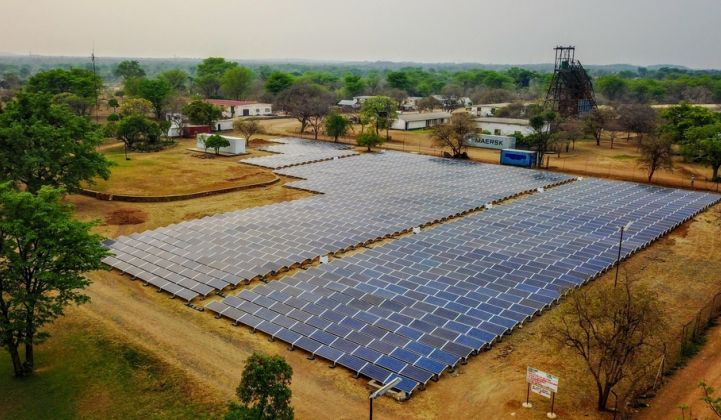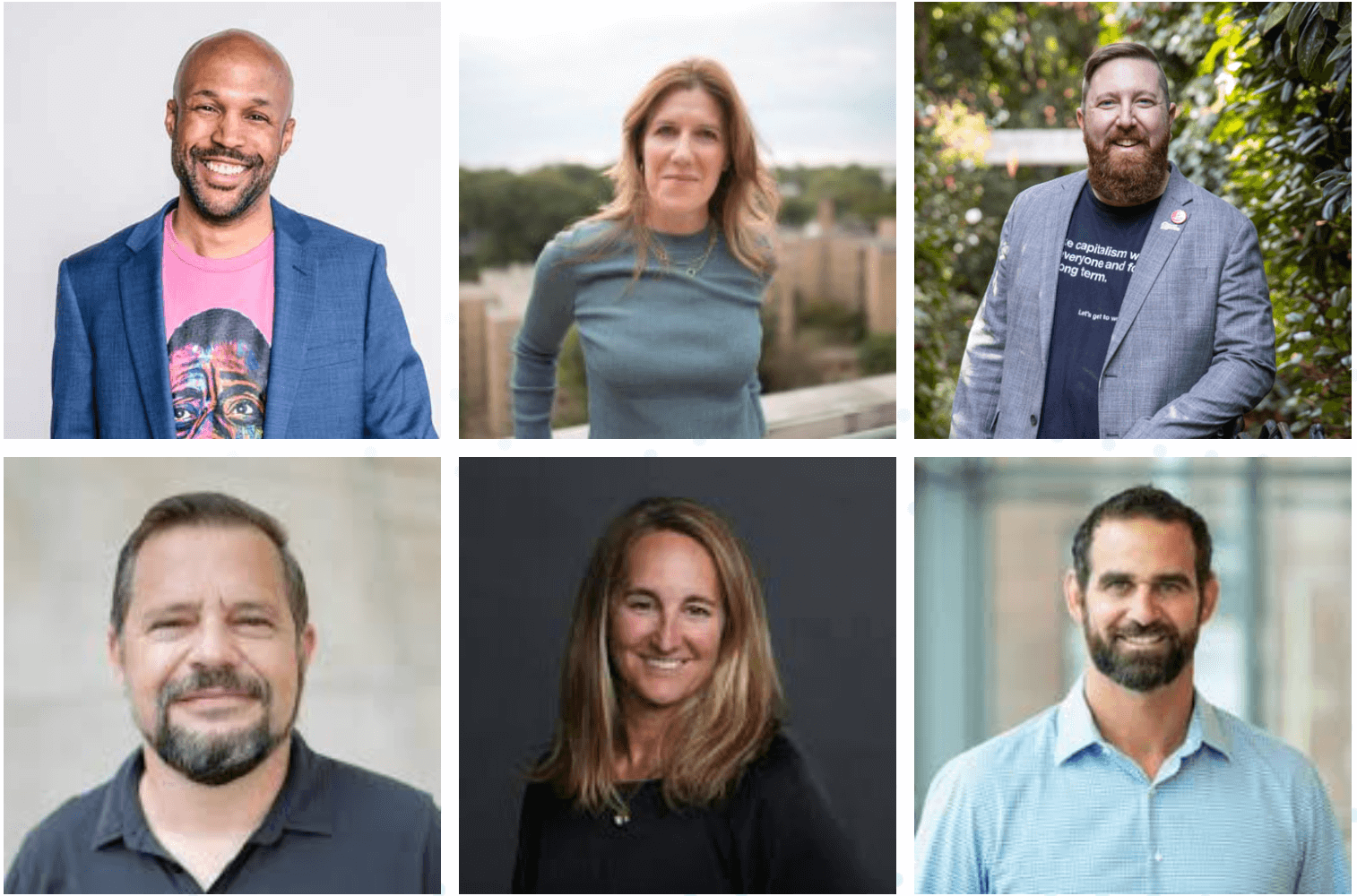Greetings, Agents of Impact!
Featured: ImpactAlpha Original
With Olamina Fund, Candide raises $40 million for lenders advancing racial justice. A lack of capital for entrepreneurs in underserved communities makes it harder to build community wealth. Funders working in these communities, such as community development financial institutions and nonprofit lenders, are often undercapitalized as well. The Olamina Fund, a new $40 million fund from the Candide Group, aims to boost the financial capacity of these front-line lenders with low-cost, flexible loans. The fund will focus on rural areas, Native lands, the deep South and other places where capital is scarce. At least 80% of its loans will go to organizations led by people of color and women. The initial $40 million comes from two of Candide’s donor-advised funds; the firm hopes to raise and deploy a total of $100 million through five- and seven-year notes.
Olamina extends the work of Candide and its investors around social and racial justice. Its first $250,000 loan went to Oakland, Calif.-based Runway Project to seed the group’s expansion to Boston (see, “Jessica Norwood: ‘Believe in you’ money for black entrepreneurs”). By asking investors to accept returns of between 1% and 1.5%, and to invest in communities perceived to be risky, Candide is hoping to spark broader change. “What should a return look like when you’re funding social justice?,” asks Olamina’s Lynne Hoey. Other nontraditional elements: two community members on Olamina’s investment committee will hold veto power and the fund plans to share ‘excess’ profits with the community. “Olamina seeks to challenge conventional notions of risk and return,” said Candide’s Morgan Simon. “We put long-term sustainable impact first, and financial gain to investors second.”
Keep reading, “With Olamina Fund, Candide raises $40 million for lenders advancing racial justice” by Amy Cortese on ImpactAlpha.
Dealflow: Follow the Money
Tata Power and Rockefeller Foundation partner on 10,000 mini-grids initiative. The two organizations are forming TP Renewable Microgrid to accelerate energy access in rural India. The solar mini-grids, to be developed over seven years, are expected to bring clean energy to five million households, 400,000 farmers and 100,000 rural enterprises and reduce their reliance on diesel and other dirty fuel sources. Rockefeller is looking to catalyze $1 billion in commercial capital to finance the grids’ development (see, “Rockefeller’s $60 million impact fund manager leverages ‘catalytic capital’ for scale”). TP Renewable Microgrid will leverage the “Utility-in-a-Box” model developed by Berkeley, Calif.,-based Institute for Transformative Technologies and Smart Power India. The low-cost, easy-to-install modular mini-grid system has been tested in the Indian states of Bihar and Uttar Pradesh. TP Renewable Minigrid will own and operate the new facilities, while Rockefeller-backed Smart Power India will provide technical expertise. Check it out.
Apple pledges $2.5 billion to five Bay Area housing initiatives. The gap between the haves and have-nots is widening in the Bay Area. More than half of low-income households live in areas grappling with gentrification, displacement and a lack of new affordable housing. In a nod to its contribution to the problem, Apple is committing $2.3 billion to finance a state-led affordable housing fund; a first-time home buyers mortgage assistance fund; and development of affordable housing on Apple-owned land. Apple will earn a return on its investments, to be deployed over two years, and will recycle profits into future housing projects. Apple pledged $150 million to a housing fund in partnership with Housing Trust Silicon Valley and a donation of $50 million to prevent homelessness. Facebook last month pledged $1 billion for Bay Area affordable housing; Alphabet’s Google similarly pledged $1 billion. More.
Cervest raises £3.7 million to model geographic impacts of climate change. The U.K.-based startup uses data and artificial intelligence to forecast landscape-level climate-related changes. Cervest’s modelling is meant to forewarn businesses and public leaders about natural disasters like floods and wildfires, or about changes in soil health and water risk. Future Positive Capital and Astanor Ventures led the company’s pre-Series A round.
LeapFrog’s co-founder launches Zamo Capital to invest in impact fund managers. Jim Roth’s new company will make debt and equity investments in impact investing fund management firms to accelerate their growth, the Financial Times reported. The U.K.’s Big Society Capital committed an undisclosed sum to Zamo to kick-start the firm.
Podcast: Returns on Investment
Private Equity Watch: Fossil fuel investments undercut impact claims (podcast). With big private equity players spinning up impact funds, the impact of the rest of their investments is getting more scrutiny as well. Fossil fuel infrastructure investments raise obvious concerns: the climate emergency demands that investors should decapitalize fossil fuels, not add them to their portfolios, Imogen Rose-Smith, a contributing editor at ImpactAlpha, said on the latest episode of the Returns on Investment podcast. KKR’s partnership with Blackrock to put up $4 billion for a 40% stake in the pipeline infrastructure of the Abu Dhabi National Oil Co., or Adnoc, struck a jarring note. The deal came as $206 billion KKR was raising more than $1 billion for its Global Impact Fund. “It’s not enough to just get a pat on the back for starting an impact fund,” Rose-Smith said on the podcast. “You need to actually start making business decisions that are meaningful.”
- Climate on the ballot. The State Department formally initiated the U.S.’s withdrawal from the Paris climate agreement with a letter to the United Nations. The withdrawal takes effect in one year, and can be reversed. That dates the U.S. departure a day after the U.S. presidential election. “Abandoning the Paris Agreement is an abdication of leadership that the vast majority of Americans oppose,” said former New York Mayor Michael Bloomberg. Democratic presidential candidates are one-upping each other with plans to cut emissions, slash fossil fuels, accelerate clean energy – and recommit to the Paris agreement.
- Doubling down. As a source for stories, keeping watch on private equity impact is the gift that keeps on giving. The podcast’s roundtable regulars take on the case of $512 billion Blackstone, which announced its new impact investing platform in May. In August, the firm moved to take over the rest of Tallgrass Energy, a Kansas-based pipeline company in which Blackstone had earlier invested $3.3 billion for a 44% stake. “People are getting to the point where it’s fair game to say, ‘What about the total impact of all of your portfolio, of all of your holdings?’” says ImpactAlpha’s David Bank.
- Keep reading, and listening. Catch “Private Equity Watch: Fossil fuel investments undercut impact claims (podcast),” on ImpactAlpha. Binge on all of ImpactAlpha’s Returns on Investment podcasts, and subscribe, on iTunes, Spotify, SoundCloud or Stitcher.
Agents of Impact: Follow the Talent
Kapor Capital is looking for a director of investments in Oakland (see, “Kapor Capital outperforms by ‘closing gaps’ for communities of color”)… Renewal Funds is hiring an investment professional and an assistant in Vancouver (see, “Renewal Funds closes fourth impact fund at $109 million”)… Future of Fish is recruiting a director of blended finance and business innovations… Stanford University’s Ethics, Society and Technology Hub seeks a program manager… Mission Investors Exchange will explore “Census2020: Why and How It Matters for Impact Investing” in a Nov. 12 webinar.
Thank you for reading.
– Nov. 5, 2019











